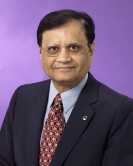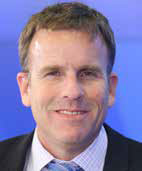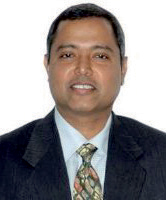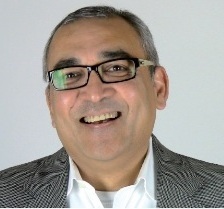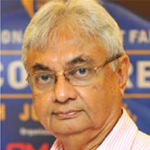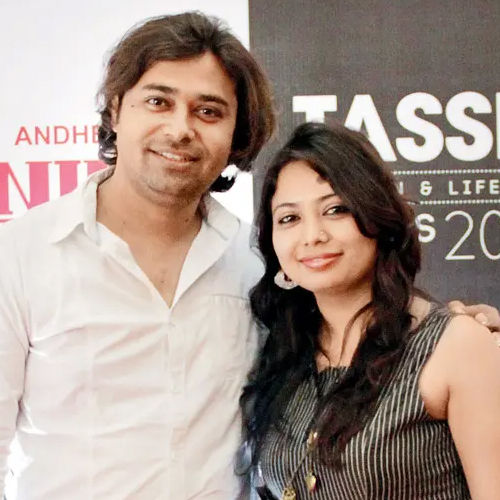
Samar Firdos
Chief Manager (Design) - Lifestyle Apparel Denim Fabrics
Arvind Ltd
Denim goes sustainable
Samar Firdos, Chief Manager (Design) at Lifestyle Apparel Denim Fabrics, Arvind Ltd has diplomas in textile design from the National Institute of Design and fashion design from the National Institute of Fashion Technology. He currently heads innovation in design in khadi and knits at Arvind Ltd. Firdos discusses the latest in denims with Meher Castelino.
Fibre2Fashion: Which are the denim varieties being used for garments in the coming season? Which are the most popular varieties? Which weights and varieties are usually preferred?
Samar Firdos:
The different varieties are 3/1 Twill weaves denim with stretch (comfort and high), going towards high stretch and better performance with Boomerang, as also comfort with athleisure in Mutants (woven knit denim) and Azurite (Indigo by Indigo). In woven knit denims, the fabric is woven on a loom and creates a knit-like structure. These are denims that give the feel and comfort of knits. Meanwhile, we have also launched Ikat Denim, made sustainably, and resembling the traditional art form of ikat. In India, Mutants and 3/1 Twill weave with stretch are popular. Below 10 oz. is the preferred weight for women's denim. Men's denim starts from 8 oz. and can go up to 12-13 oz. The Ikat Denim is a technology-driven concept giving the flavour of Indian traditional art. The concept has been inspired from the ikat technique. It is made using highly sustainable dyeing processes. We have different weights both for men's (10-11.5 oz.) and women's (7-9 oz.).
F2F: How popular do you think innovations like ikat in denim are likely to be? Which other weave are you planning to incorporate into denim?
SF:
There is an underlying story of sustainability with aesthetics in products like Ikat Denim. As mentioned earlier, there is a developing taste for innovations and aesthetics in denims, and that is something that should drive success for such products. The focus has been on building on finishes and washes in all existing popular weaves.
F2F: Why is khadi denim more expensive than normal denim
SF:
Khadi involves the authentic way of producing fabric, something that was developed over 4,000 years back. It is a cottage industry where each process of making yarn, dyeing and weaving is done manually, and no automation and electricity is used. At the most, around 3-4 metres of fabric can be woven in a day. That is what makes it more premium and artisanal.
F2F: Which are the latest washes that are popular? Does conventional denim in heavy weights still sell well? What do customers look for in denim - innovations or fashion?
SF:
Denim-washing is shifting towards sustainable methods, which include washes with less chemicals, dyes and water. Bottom is still popular. Ninety per cent of our business is in bottom weights. Chinos have been a niche category, while denim is primary for a lot of brands. We have tried stretching the boundaries for chinos with our Hybrid Chinos line, which is a combination of denims and chinos. Fitted is going out of fashion. In men's, basic 5-pocket, engineered denims, workwear and comfort fit with stretch are popular. In women's, high stretch and body shaping denim are still trendy. Denim is trans-seasonal. Weights and shades segregate it into different seasons. There has always been a market for heavy weight denims, though other varieties in lighter and more comfortable weights have gained traction. Customers are looking for performance features along with aesthetics.
F2F: How often does the Arvind Design Studio present collections and fashion garments? Are the styles shown at the recently concluded The Gravity fashion show available in the retail market?
SF:
In India, we showcase the collection through festive shows in Delhi and Mumbai during March, and brands shows in Bengaluru around May. For international shows, the collection is made for spring/ summer and autumn/winter shows, which take place in Amsterdam, New York and Paris. Apart from this, we make separate collections for our key buyers. The Gravity collection showcases the latest denim fabric offerings from Arvind. Those are sold as fabrics to major brands and traders across the country. However, the idea of the collection is to showcase the capability of the fabrics as a garment.
F2F: How many varieties of denim have lycra in them? Does denim sell only with indigo?
SF:
Apart from our rigid line (100 per cent cotton), most of the varieties have lycra, which may be in the form of comfort stretch or high stretch. About two-thirds of the denims are made in stretch (which have lycra). Indigos with different cast and shades sell broadly in domestic and international markets. But there are other shades, which are also promoted; black and grey are good examples. The focus is on deep dark indigos for 2018-19.
F2F: What steps does Arvind take to reduce its carbon footprint? And, when it comes to sustainability, where does denim fit in? What about smart denims?
SF:
Sustainability is at the core of Arvind's way of doing business. We have been developing products using sustainable fibres, dyes, chemicals and finishes. Many fabrics are made from organic cotton, BCI, natural indigo, or post-consumer waste, to name a few. The industry is becoming aware of the needs and is using a low amount of water and chemicals in washing compared to earlier days. There already are smart denims in the market. Project Jacquard by Levi's and Google is an example. Arvind has been a channel partner in the project.
F2F: What percentage of sales does denim give to Arvind? What new can one expect from you?
SF:
Denims are approximately one-third of the Arvind textiles business. There is a focus on developing more sustainable products for the Indian market. We also see a gradual shift from woven knits to 3/1s across all tiers of the Indian market.
F2F: What is your vision when it comes to design for fabrics and fashion?
SF:
The firm focus in terms of garment design and fabric should be on exclusivity, blending beautifully with freshness and innovation in design. Change is inevitable and enduring, and designs should cater to our constantly changing needs. My passion is to infuse innovation with fashion, and create fabrics that pave the way for beautiful garments.
Abhay Gupta
Anurag Batra
Rahul Mehta
Pradip Mehta
Bill D’Arienzo
Gabi Seligsohn
Arun Sirdeshmukh
Fanny Vermandel
Aseem Prakash
Rahul Mehta




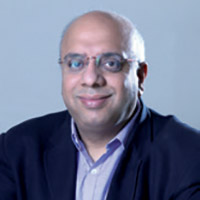
_8.JPG)
